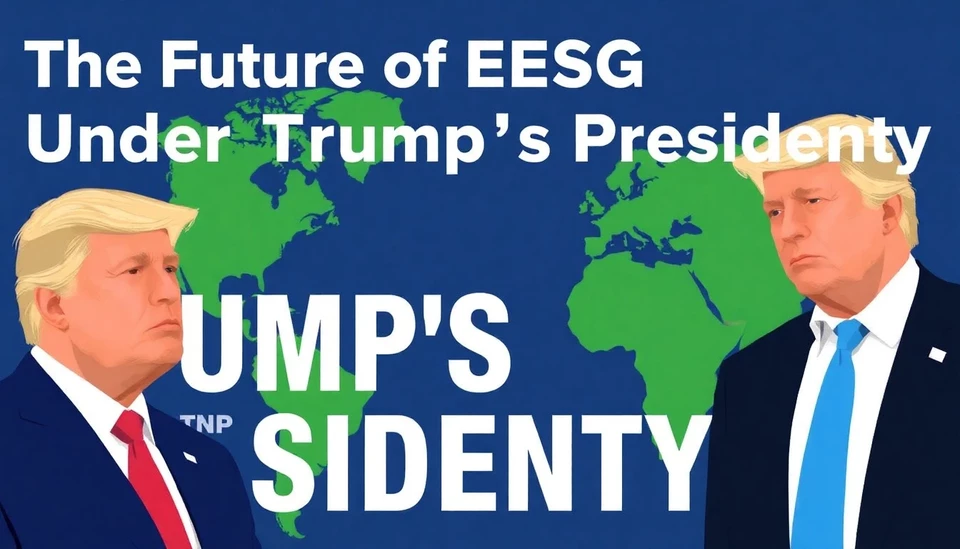
In a fervent demonstration of political polarization, former President Donald Trump's return to the political arena has reignited debates over environmental, social, and governance (ESG) issues. With his administration's history of deregulatory measures and skepticism towards climate initiatives, the impact of his policies on the ESG landscape remains a critical question for investors, corporations, and activists alike.
Trump, who has historically criticized ESG as a veiled attempt to enforce a progressive agenda, is positioning himself against the frameworks that many companies have adopted in response to increasing investor and consumer demand for sustainability. The former president's rhetoric, which frames these frameworks as encroachments on business freedom, resonates with a significant portion of the electorate, suggesting a robust backlash against standardized ESG metrics.
Under Trump's lead, the focus appears to shift toward prioritizing economic growth over environmental considerations. This strategy appeals to traditional business sentiments and critiques the perceived elitism of the ESG movement. Trump portrays ESG initiatives as burdensome regulations that hamper American businesses, particularly those in industries reliant on fossil fuels. This narrative can energize a base that remains wary of climate policies viewed as detrimental to job creation and economic stability.
The implications for market behavior are profound. If Trump’s vision for loosening regulations gains traction, corporations may face dilemmas about whether to continue pursuing ESG strategies. A retreat from these commitments could result in a significant shift in investment while jeopardizing the progress made towards addressing climate change and social justice.
Moreover, the backlash against ESG is not just ideological; it is finding its way into legislation in some states. Several Republican-led states are introducing bills aimed at undermining the influence of ESG criteria in financial and investment decisions. These legislative efforts reflect a growing alignment between political action and corporate governance, potentially stifling the ESG momentum that has been building in recent years.
For asset managers and institutional investors, the evolving landscape necessitates strategic adaptations. The potential volatility in ESG-focused investments places significant pressure on financial institutions to realign their portfolios amidst shifting political winds. Investors committed to sustainability may face challenges in advocating for accountability in environmental practices if regulatory frameworks become more lenient under Trump's influence.
Ultimately, Trump's presidency represents a pivotal moment for the future of ESG. The potential rollback of environmental policies may hinder global efforts towards sustainability and directly impact the landscape of corporate governance. Stakeholders are left grappling with the reality of navigating a political environment that could either revive or roll back years of progress made in the realm of sustainable business practices.
As the political climate continues to evolve and Trump remains a significant figure in American politics, the fate of ESG is uncertain. It is a narrative that will undoubtedly influence not only presidential race dynamics but also the broader discourse around sustainability in the corporate world.
In conclusion, as we dissect the implications of Trump's presidency on ESG, it is clear that the repercussions will reverberate through financial markets, legislative actions, and corporate strategies. Those engaged in business and investment should brace for a potentially tumultuous ride as the former president positions himself against the tide of sustainability trends.
#Trump #ESG #GreenBacklash #Sustainability #ClimatePolicy #Investing #CorporateGovernance #PoliticalClimate #EconomicGrowth
Author: Sophie Bennett




